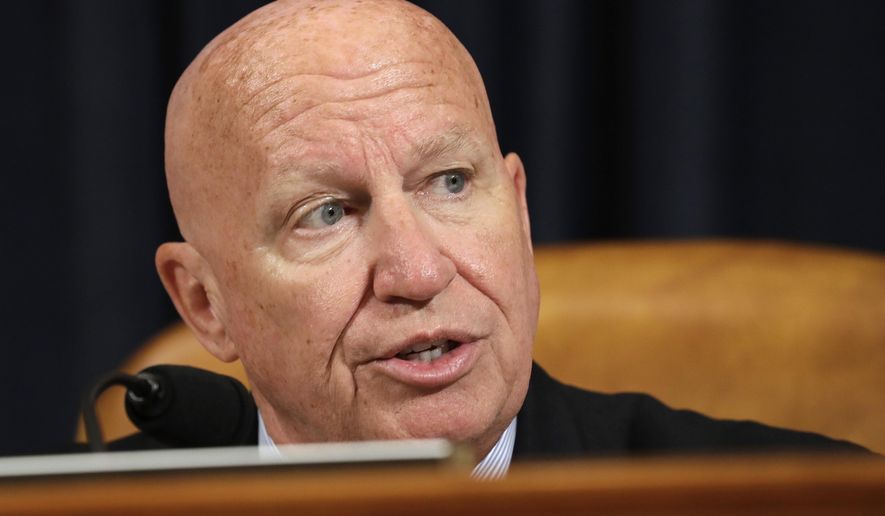House Ways and Means Committee Chairman Kevin Brady said Monday that while a general framework for the GOP’s tax reform plans is coming this week, his committee won’t be filling in the details of the plan until Congress finishes its work on the 2018 budget blueprint.
“Ultimately, based on the framework this week, we will deliver [and] unveil a comprehensive tax reform plan after the budget is completed by the House and the Senate,” Mr. Brady told reporters.
Mr. Brady, Texas Republican, reiterated that he’s committed to getting tax reform passed by the end of the year.
But the 2018 budget — which Republicans need to approve in order to unlock a fast-track legislative tool they plan to use to pass tax reform — is already months behind schedule amid an internal GOP debate on where the spending levels should fall and what the tax package will include.
Mr. Brady spoke as Ways and Means Committee members were approaching the end of a two-day tax policy retreat ahead of the expected rollout of a more detailed framework Wednesday.
Republicans are planning to use a fast-track budget tool, known as reconciliation, to bypass a possible filibuster in the Senate for their tax legislation, but they need to pass a 2018 budget blueprint to unlock it first.
The House Budget Committee passed its framework in July, but the full House has yet to vote on it. Some conservatives, wary of the stalled Obamacare repeal efforts, have said they want to see more details on the tax reform plan before they commit to voting for a budget.
Mr. Brady said when the reconciliation process is finished, his committee will lay out a comprehensive bill and start to advance it.
He declined to get into specifics on what the framework to be revealed Wednesday will include, saying he didn’t want to get ahead of the announcement.
“My prediction is the framework will deliver the lowest tax rates on businesses in modern history,” he said.
Rep. Jim Renacci, another member of the committee, had said earlier in the day that Republicans are looking at slashing the corporate tax rate from 35 percent to 20 percent and the top individual rate from 39.6 percent to 35 percent.
The GOP is also eyeing cutting taxes for small businesses that file their taxes as individuals from the top rate of 39.6 percent to 25 percent, according to Mr. Renacci, Ohio Republican.
“It’s very close. It could be there, could be lower, could be higher,” Mr. Renacci said on Fox Business Network. “We’re trying to get to those numbers.”
But lawmakers in both chambers still have a ways to go to get a budget plan passed.
GOP Sens. Bob Corker and Pat Toomey, two budget-writers, recently announced an agreement on the budget that could clear the way for lawmakers to pass up to $1.5 trillion in tax cuts over a 10-year period.
But Sen. Lindsey Graham of South Carolina, another budget committee member, said this week that he might push for health care-related language to be included in the budget if his Obamacare repeal push fails this week, which could potentially complicate matters.
“I’m on the budget committee. Ron Johnson’s on the budget committee. We’re not going to vote for a budget resolution that doesn’t allow the health care debate to continue,” Mr. Graham said on ABC’s “This Week.”
• David Sherfinski can be reached at dsherfinski@washingtontimes.com.




Please read our comment policy before commenting.